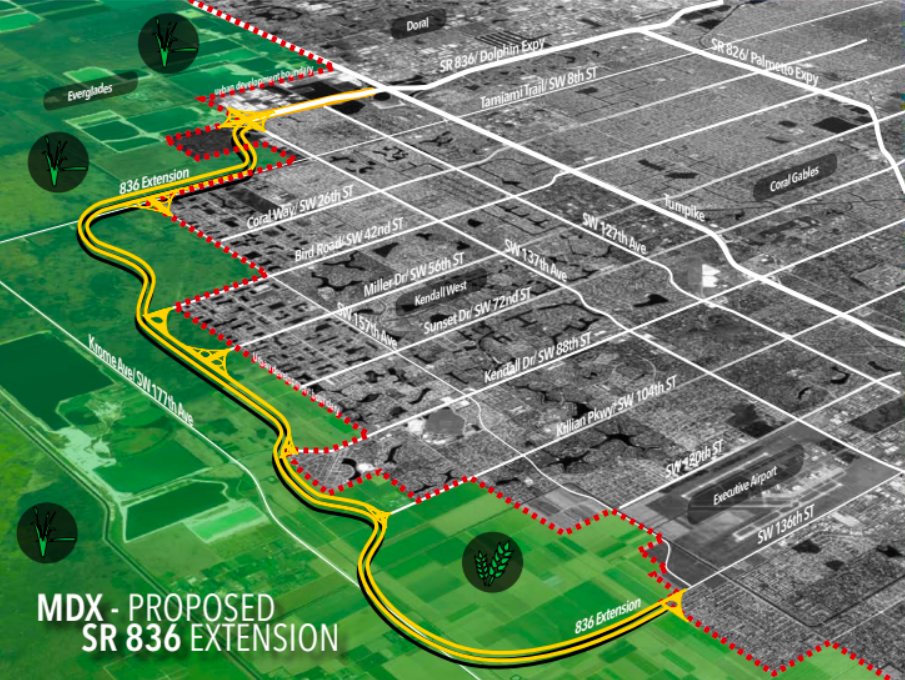Miami is on the verge of doubling down on the bad planning decisions that have made it such a traffic nightmare.
On Thursday, the Miami-Dade County Commission will vote on whether to proceed with building a 13-mile highway through the Everglades that opponents say imperils the region's drinking water and vulnerable coastal areas, and will help cement a sprawling growth pattern and near-total dependence on highways only to dump more traffic onto the already-congested State Route 836, or the "Dolphin Expressway."
The proposal to extend the 836 along the western border of Miami's developed area is being championed by the Miami-Dade Expressway Authority and by County Mayor Carlos Gimenez. The highway will go beyond Miami-Dade's urban growth boundary into sensitive environmental areas like the Bird Drive Basin, which was set aside to replenish the Everglades National Park.
The Expressway Authority spent $150,000 of taxpayer money to advertise the plan, but the agency hasn't even finalized the route of the highway, plus other important details, before the consequential vote, the Miami Herald reported.
The lack of certainty about the highway's position has neutralized protests from homeowners groups in the West Kendall area, according to the Herald.
In addition, no alternatives to the highway extension have been officially explored by Miami-Dade. The county has only considered the highway extension in two alignments, one closer to the residential areas, and another further into the wetlands. No consideration of transit was offered at all.
Transit Alliance Miami says light rail or bus rapid transit — which would offer commuters an alternative to highway gridlock — could be built for a fraction of the proposed $650-million highway price tag. And better transportation infrastructure would spur development of walkable communities, which would delay calls for future highway widenings.
Oppositions group including Transit Alliance, 1000 Friends of Florida, Friends of the Everglades and others have asked County Commissioners postpone the decision until alternatives have been studied.
"It’s not ready for a finally decision," Marta Viciedo of Transit Alliance Miami told Streetsblog. "I don’t know how you are a final decision on something that’s so potentially destructive and you don’t have all the information.
"There is really no ideal solution to be completely honest," she added. "It’s a problem of our poor planning. You can’t solve the problem by applying the same thinking that got us here in the first one."






